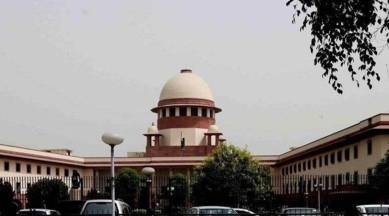Stay updated with the latest - Click here to follow us on Instagram
SC rejects Centre’s plea for more funds from UCC for Bhopal gas tragedy victims: A brief timeline of the case
Years of litigation on the matter of compensation for the victims culminated in the Corporation being ordered to pay $470 million as a settlement in 1989.

The Supreme Court on Tuesday dismissed Centre’s curative plea seeking additional funds from Union Carbide Corporation’s (UCC) successor firms as increased compensation for the victims of the 1984 Bhopal gas tragedy.
The gas leak in Bhopal was among the worst environmental and humanitarian disasters in the history of the country, claiming the lives of over 4,000 people, leaving many others to endure the life-altering effects of the toxic methyl isocyanate gas, and causing immense upheaval in the natural world.
monthly limit of free stories.
with an Express account.
Years of litigation on the matter of compensation for the victims culminated in the Corporation being ordered to pay $470 million (that amounted to Rs 725 crore at the then exchange rate) as a settlement in 1989. This amount was endorsed by the apex court that subsequently refused to increase the quantum of settlement.
In 1991, the Supreme Court dismissed a petition by the Union Government, which sought to re-open the the settlement. It cited Article 142 of the Constitution, which permitted the court to go beyond the plea and do “complete justice”. After almost 19 years, the Centre moved to revive the case, and filed a curative petition for additional compensation to the victims.
Here is a brief timeline of court proceedings since the curative petition filed in 2010:
December 2010: Centre files the curative petition in the apex court for enhanced compensation, amounting to an additional amount of more than Rs 7,000 crore. Claims included that the settlement was based on an incorrect assumption of total number of deaths, injuries, losses and failed to factor in the subsequent environmental degradation.
October 2022: Attorney General R Venkataramani tells a five-judge constitution bench of Supreme Court that it is “keen to pursue” its curative petitions seeking enhanced compensation for the victims, saying it “cannot abandon” those who suffered the ill-effects of the toxic gas leak from the Union Carbide factory.
January 10, 2023: The top court commences hearing of Centre’s curative petition, queries “the settlement was arrived at, at a particular point of time. Can we say that 10 years hence, 20 years hence or 30 years hence, open the settlement on the basis of fresh documents?”
January 11, 2023: The Supreme Court tells the Centre it cannot act like a “knight in shining armour” and decide its curative plea, saying “it is very easy to dip into someone else’s pocket and take out the money. Dip into your own pocket and give the money and then see if you can dip into their (UCC) pocket or not”.
The AG held that looking at the enormity of the human tragedy, which was unprecedented, it is very important to go beyond some of the conventional principles.
However, the top court said it has already spoken about ‘maryada’ (sanctity) of its curative jurisdiction and is constrained by law despite having some leeway.
January 12, 2023: Appearing for Union Carbide Corporation (now owned by Dow Chemicals M), Mr. Harish Salve argues that a full and final settlement was arrived at between his client and the Government of India in 1989, and there is no scope for re-opening of the same. The SC reserves its order on the petition.
March 14, 2023: A five-judge Constitution Bench headed by Justice Sanjay Kishan Kaul, dismisses the petition, saying that reopening the issue “will only work in favour of UCC by opening a pandora’s box and will be to the detriment of the claimants.” The court directs the Centre to use the “Rs 50 crores lying with RBI” to address the needs of the claimants. “We are unsatisfied with the Union of India for not furnishing any rationale for raking up this issue after two decades,” it adds.